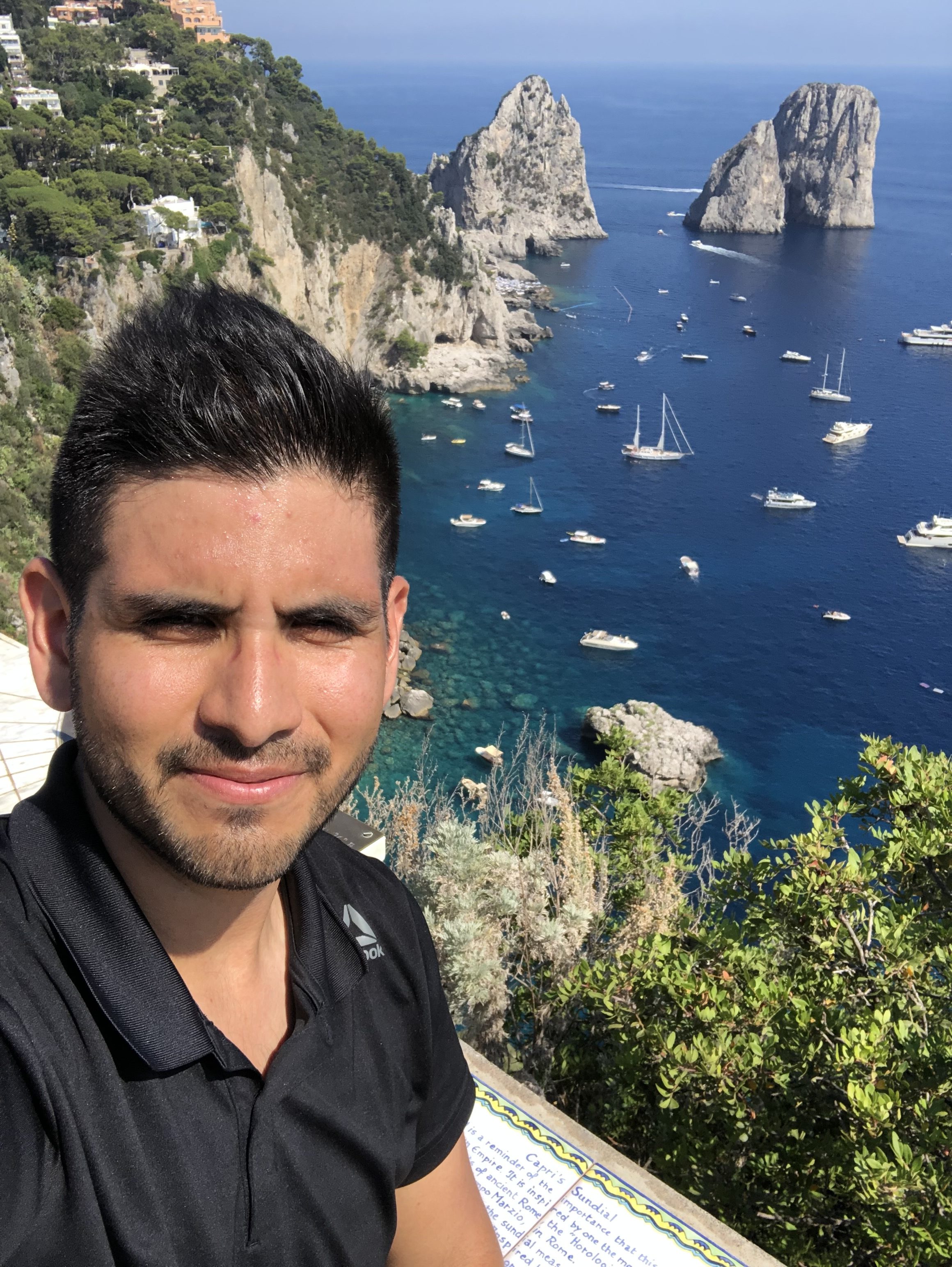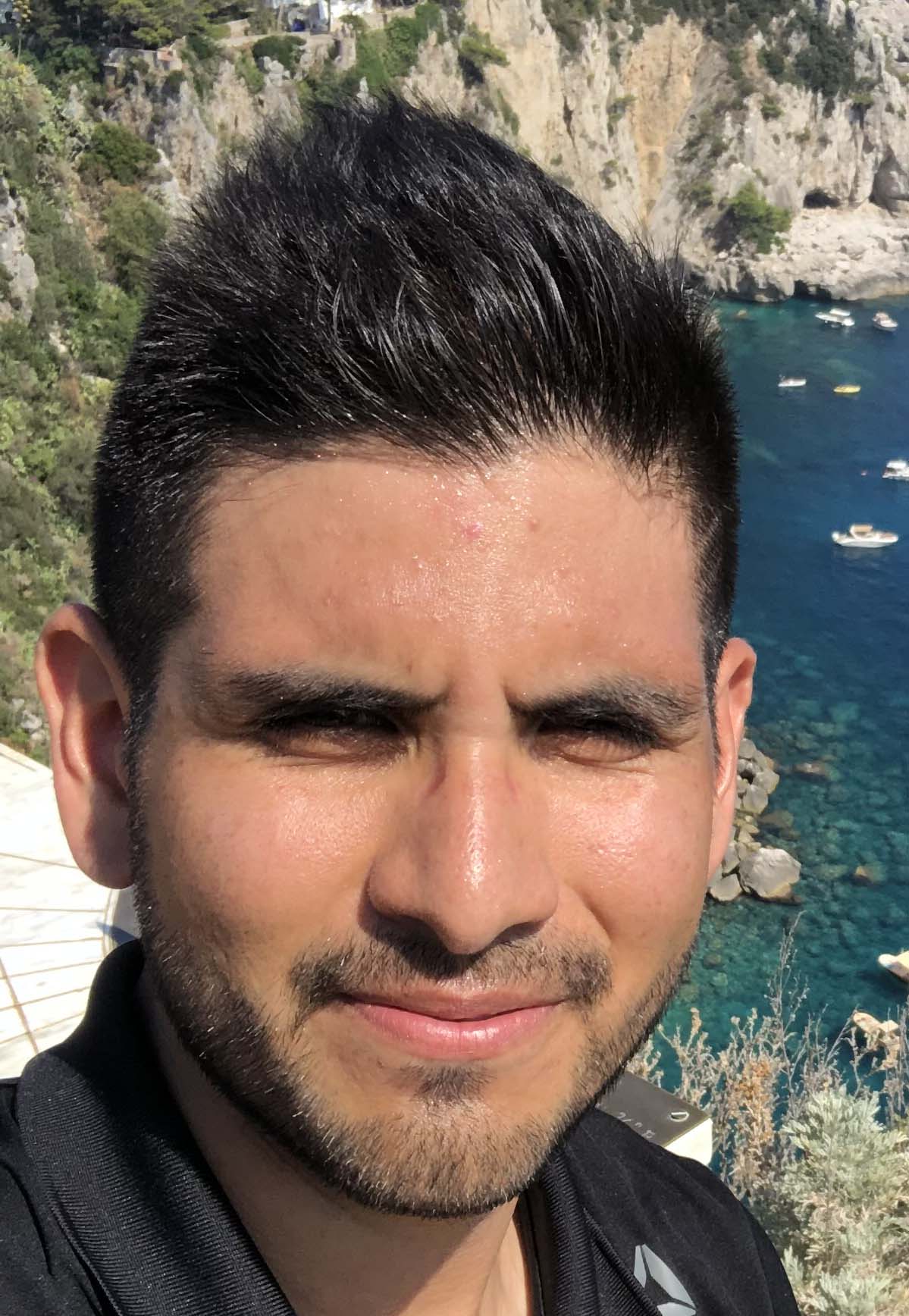
Juan Pablo León
Engineer, NASA's Jet Propulsion Laboratory
Follow Europa Clipper
Hometown
Guayaquil, Ecuador 🇪🇨
Education
- Master's Degree in Electrical Engineering from Florida Institute of Technology with emphasis in Spacecraft Design
- Bachelor's Degree in Electrical Engineering from Florida Institute of Technology
Juan Pablo León comes from a family that spent most of their summer vacations at the beach. He has memories of spending entire days at the beach, floating in the Pacific Ocean long after dark and thinking of the unexplored parts of the ocean beneath him and the mysterious planets and stars above. “It gives you another perspective,” he recalled. “What’s up there and what’s underneath, and us (humans) right in between.”
Now Juan Pablo is on an upcoming journey to another ocean far beyond Earth – Jupiter’s icy moon Europa. He’s an electrical and power systems engineer on an uncrewed, robotic NASA mission called Europa Clipper.
A Distant Dream
His love of space, science and engineering (especially robotics) grew as he found inspiration throughout his early years, fed by documentaries, science fairs, space missions (like the Apollo, Space Shuttle and interplanetary programs) and even the role that NASA played in many science fiction movies like the 1998 asteroid disaster movie “Armageddon.”
“Growing up in Ecuador made me feel that the space program was something far, far away, like a distant dream that is unreachable,” he said. For this reason, Juan Pablo looked into other exciting career paths but all roads brought him back to his childhood love. For this reason, he decided to risk it all and pursue his passion. “There is only one life. If I’m going to do this, I’m going to give all of me. If it is not meant to be, so be it but at least I will know that I gave it all and my best. But if it is, I would be living my dream. Isn’t that worth it?”
Who wouldn’t want to be part of something bigger than just us? It’s discovery. That’s what we’re doing right now with the Europa Clipper mission, exploring the probabilities of finding something intriguing and mysterious.

Juan Pablo León
Engineer
Part of History
Throughout his journey, Juan Pablo was able to overcome obstacles and thrive over challenges until an opportunity arose that took him to the gates of NASA’s Jet Propulsion Laboratory in southern California. “Over time, there was just a little grain of thought in my mind that said, “Hey, this is a possibility.” I could see what an important role NASA plays in the overall schema of space exploration, technological development and, at the end, defining our future and writing history. So who wouldn’t want to be part of history? Who wouldn’t want to be part of something bigger than just us? It’s discovery. That’s what we’re doing right now with the Europa Clipper mission, exploring the probabilities of finding something intriguing and mysterious.”
Juan Pablo and the Europa Clipper team are preparing for a planned 2024 launch and arrival in Jupiter’s orbit in 2030. Like most people at NASA and JPL, he wears more than one hat at work. His focus in this critical time before launch is on systems and integration on the mission’s testbed, an Earth-bound version of the spacecraft where all software and hardware are proven before they are sent into space.
“It’s like having this huge puzzle, with each piece having a complex and intricate design and trying to make sure all those pieces fit perfectly. No gaps. No errors. No nothing,” he said.
Personal Life
When he’s not solving spacecraft puzzles, Juan Pablo trains Krav Maga, an Israeli martial art. He’s into other active sports like scuba diving, snowboarding and rock climbing. The most important thing, as a full-time single dad, is to share those experiences with his pre-teen son.
“We did a summer road trip from the East Coast to the West Coast of the United States and then at the end of the year, we went to Hawaii,” Juan Pablo said. “We were able to stop at all these towns, be exposed to different cultures and visit national parks. It was great to be away from the city, just looking up together into the night sky and down in the ocean and wonder.”
